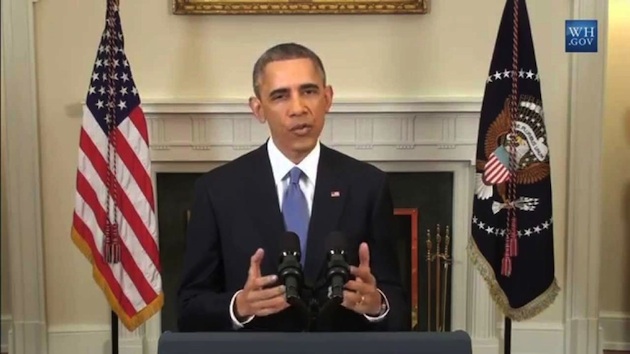
President Obama announced his administration will take steps toward normalizing full diplomatic relations with Cuba and even opening an embassy. The president’s remarks on Cuba underscore his push to end the 1960s-era Cuban embargo, which was instituted in a bipartisan fashion, and come after American hostage Alan Gross was released from a prison in Cuba as part of a prisoner swap.
“We cannot keep doing the same thing and expect a different result,” Obama said. “It does not serve America’s interests, or the Cuban people, to try to push Cuba toward collapse.”
The prisoner exchange resulted in the release of Mr. Gross, but also paid a hefty price — three convicted Cuban spies. Below is a watered down list of actions the president will immediately take on Cuba via WhiteHouse.gov:
EDITOR’S NOTE: In no way does the editorial board at People’s Pundit Daily, nor do any other members of our staff, endorse the insinuations made by the policy outline below. It is the White House’s outline verbatim, not ours.
Re-establish diplomatic relations
Our diplomatic relations with Cuba were severed in January of 1961. The President is immediately reopening discussions with Cuba and working to re-establish an embassy in Havana in the next coming months. The U.S. will work with Cuba on matters of mutual concern that advance U.S. national interests, such as migration, counternarcotics, environmental protection, and trafficking in persons, among other issues.
More effectively empower the Cuban people by adjusting regulations
The President is taking steps to improve travel and remittance policies that will further increase people-to-people contact, support civil society in Cuba, and enhance the free flow of information to, from, and among the Cuban people.
Facilitate an expansion of travel to Cuba
With expanded travel, Americans will be able to help support the growth of civil society in Cuba more easily, and provide business training for private Cuban businesses and small farmers. Americans will also be able to provide other support for the growth of Cuba’s nascent private sector.
General licenses will be made available for all authorized travelers in 12 existing categories:
1. Family visits
2. Official business of the U.S. government, foreign governments, and certain intergovernmental organizations
3. Journalistic activity
4. Professional research and professional meetings
5. Educational activities
6. Religious activities
7. Public performances, clinics, workshops, athletic and other competitions, and exhibitions
8. Support for the Cuban people
9. Humanitarian projects
10. Activities of private foundations, research, or educational institutions
11. Exportation, importation, or transmission of information or information materials
12. Certain export transactions that may be considered for authorization under existing regulations and guidelines
Authorize expanded sales and exports of certain goods and services from the U.S. to Cuba
The expansion will seek to empower the nascent Cuban private sector and make it easier for Cuban citizens to have access to certain lower-priced goods to improve their living standards and gain greater economic independence from the state.
Authorize American citizens to import additional goods from Cuba
Licensed U.S. travelers to Cuba will be authorized to import $400 worth of goods from Cuba, of which no more than $100 can consist of tobacco products and alcohol combined.
Initiate new efforts to increase Cubans’ access to communications
and their ability to communicate freely
Cuba has an Internet penetration of about five percent – one of the lowest rates in the world. The cost of telecommunications in Cuba is exorbitantly high, while the services offered are extremely limited. Now, telecommunications providers will be allowed to establish the necessary mechanisms, including infrastructure, in Cuba to provide commercial telecommunications and internet services.
Learn more about the steps President Obama is taking to improve U.S. and Cuban relations here.







